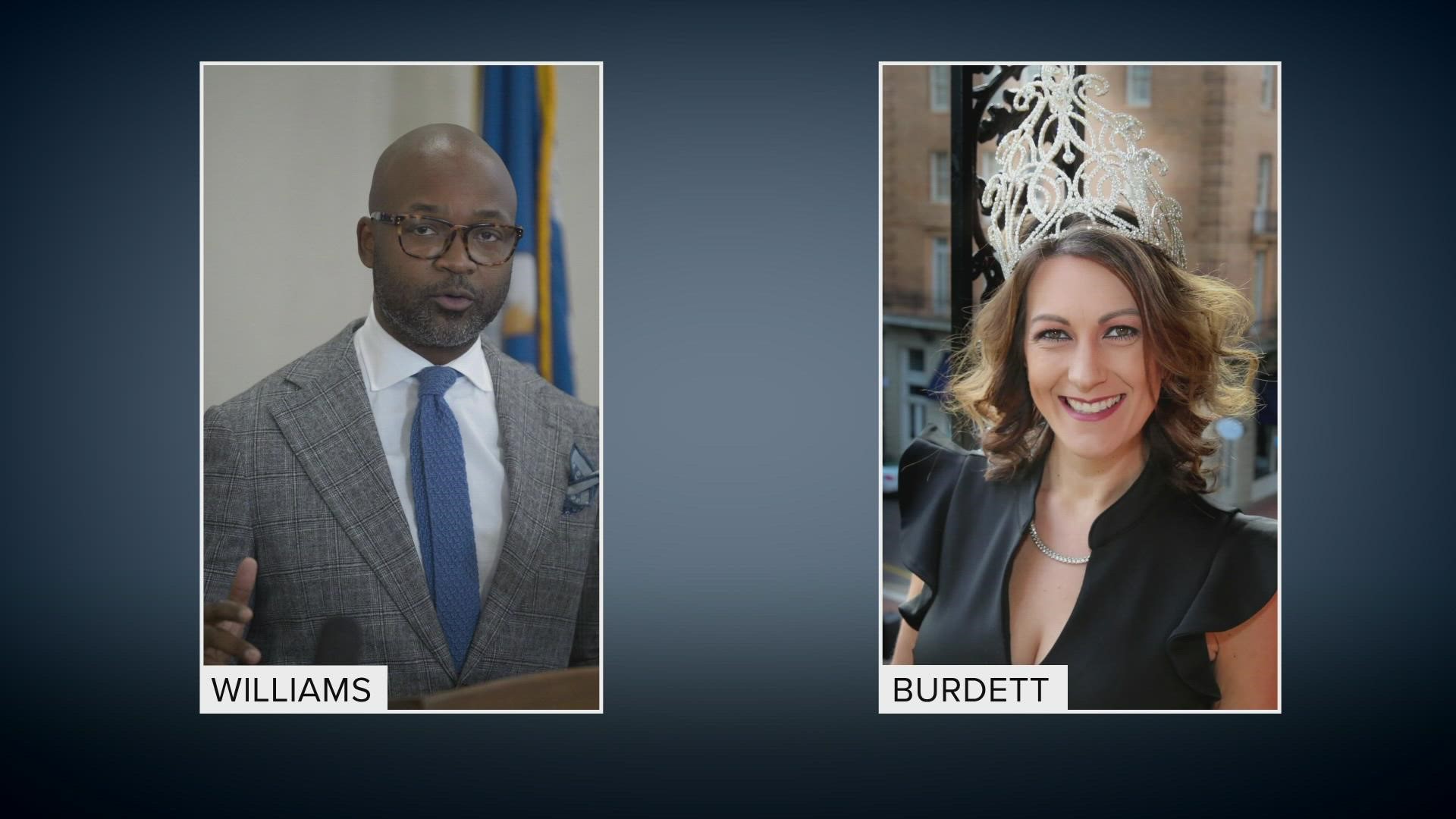NEW ORLEANS — As Orleans Parish District Attorney Jason Williams oversaw the prosecution at a murder trial Wednesday afternoon, an assistant U.S. attorney was in another courtroom about a mile away, arguing for more leeway to prosecute Williams for tax fraud.
Forrest Phillips, a federal prosecutor from Louisiana’s Western District, stood in front of a three-judge panel of the U.S. 5th Circuit Court of Appeals, asking them to overturn a pre-trial ruling that could hamper the prosecution of Williams and his former law partner, Nicole Burdett.
The federal government alleges Williams and Burdett conspired to inflate business expenses by about $700,000 and thus lowered Williams' tax burden by $200,000 over five years, from 2013 to 2017. The government wants to present evidence dating back to 2002 of Williams’ tax problems, including delinquencies, late filings, correspondence showing his disputes with the IRS and a large tax lien placed on Williams’ property.
But U.S. District Judge Martin Feldman limited the government’s ability to discuss the details of his previous tax delinquencies at trial. Feldman was going to preside over that trial, but he delayed it a few weeks before it was scheduled to start on Jan. 24, and then Feldman died on Jan. 27.
The case has since been reassigned to U.S. District Judge Lance Africk, but no new trial date has been set.
Meanwhile, the question of whether the federal government can talk about Williams’ tax history is still up in the air, too.
Phillips argued to the appellate court panel that Williams' tax history is relevant, to show jurors that he "was very involved in his tax issues" and to counter the defense’s claim that he didn’t understand that his business expense deductions had been inflated by a professional tax preparer named Henry Timothy.
Asked by U.S. Appeals Court Judge Gregg Costa if he would be asserting what’s called a “good-faith reliance defense,” Williams' lawyer, Billy Gibbens, acknowledged that he is indeed planning to argue that Williams detrimentally relied on Timothy. Williams’ defense team has previously argued he did not know his business expenses were being inflated to fraudulently lower his tax burden.
Gibbens argued that Feldman’s ruling was correct because it left the door open for the federal government to present certain evidence about why Williams hired Timothy in the first place, but it wouldn’t let prosecutors use Williams’ previous tax delinquencies as some kind of proof that he committed crimes later on.
“That’s what concerned Judge Feldman the most,” Gibbens argued.
Costa and Judge Cory Wilson both seemed inclined to uphold Feldman’s ruling and emphasized that the presiding judge could still allow more of Williams’ tax delinquency history to be presented at trial depending on how it progresses. At one point, Wilson pointedly asked Phillips, “Where is the abuse of discretion (by Feldman) if the court could still allow it in trial?”
Neither Williams nor Burdett showed up for the hearing Wednesday. Williams was in Orleans Parish Criminal Court Section H, prosecuting Samuel Hunter Jr. for allegedly murdering 19-year-old Anthony Bridges on Christmas Day of 2020.
► Get breaking news from your neighborhood delivered directly to you by downloading the new FREE WWL-TV News app now in the IOS App Store or Google Play.

